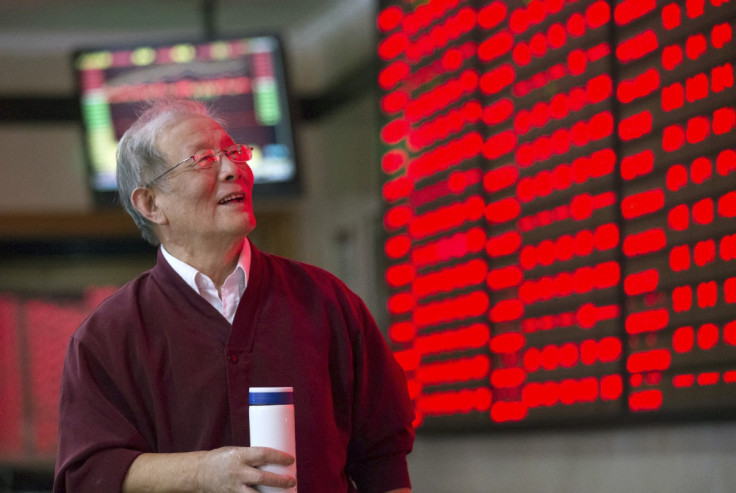Asian markets: China gains following monetary easing by PBoC

While Asian stock market indices were trading in a mixed pattern, China's Shanghai Composite Index was up 1.58% at 2,730.47 on Tuesday at 6.54am GMT. This followed the monetary easing by People's Bank of China (PBoC), the country's central bank and a downbeat survey on China's manufacturing sector.
On 29 February, PBoC's website said that it had cut the reserve requirement ratio (RRR), the amount of cash a bank is required to hold as reserves, by 50 basis points. The move is expected to provide more liquidity in the country's financial markets.
Jian Chang, an analyst at Barclays said, "We think the PBOC easing is consistent with continued weaker-than-expected economic activity and downside risks to growth. It should help to support market sentiment in the near term."
Investors also reacted on 1 March to news that an official survey showed activity in China's manufacturing sector slowing down. Manufacturing activity in the country fell for a seventh straight month in February at a rate sharper than expected. The survey also indicated that while China's services sector continued to grow, the expansion was at its slowest pace since late 2008.
Indices in the rest of Asia traded as follows on 1 March at 5.56am GMT:
| Country | Index | Up/Down | %Change | |
| Hong Kong | Hang Seng Index | 19,213.78 | Up | 0.53% |
| Japan | Nikkei 225 | 16,015.83 | Down | 0.07% |
| South Korea | KOSPI | Holiday (Independence Movement Day) | ||
| India | CNX Nifty | 7,143.35 | Up | 2.24% |
| Australia | S&P/ASX 200 | 4,922.30 | Up | 0.85% |
Meanwhile, the Dow Jones Industrial Average closed at 16,516.50, down 0.74% overnight, while the FTSE 100 closed higher by 0.02% at 6,097.09 on 29 February.
Going forward, investors will be closely awaiting the outcome of the meetings of the European Central Bank and the US Fed, both of which are scheduled to be held this month. "Optimists might hold out for supportive policies or communication from the European Central Bank's (ECB) 10 March policy meeting. And there is also the U.S. Federal Reserve's Federal Open Market Committee (FOMC) meeting on 15-16 March. But short of anything dramatic, risk asset markets are likely to resume downwards," Singapore's DBS bank said.
Among commodities, crude oil, which has been declining for the past 18 months due to supply exceeding demand, saw an uptick. WTI crude oil was trading 0.24% higher at $33.83 (£24.27, €31.08) a barrel, while Brent was up 0.03% at $36.58 a barrel at 6.07am GMT on 1 March.
This follows the Standard Chartered warning earlier this year that oil prices could slide to $10 a barrel. The bank had stated in January that oil prices will not bottom out until "money managers in the market conceded that matters had gone too far".
© Copyright IBTimes 2025. All rights reserved.





















